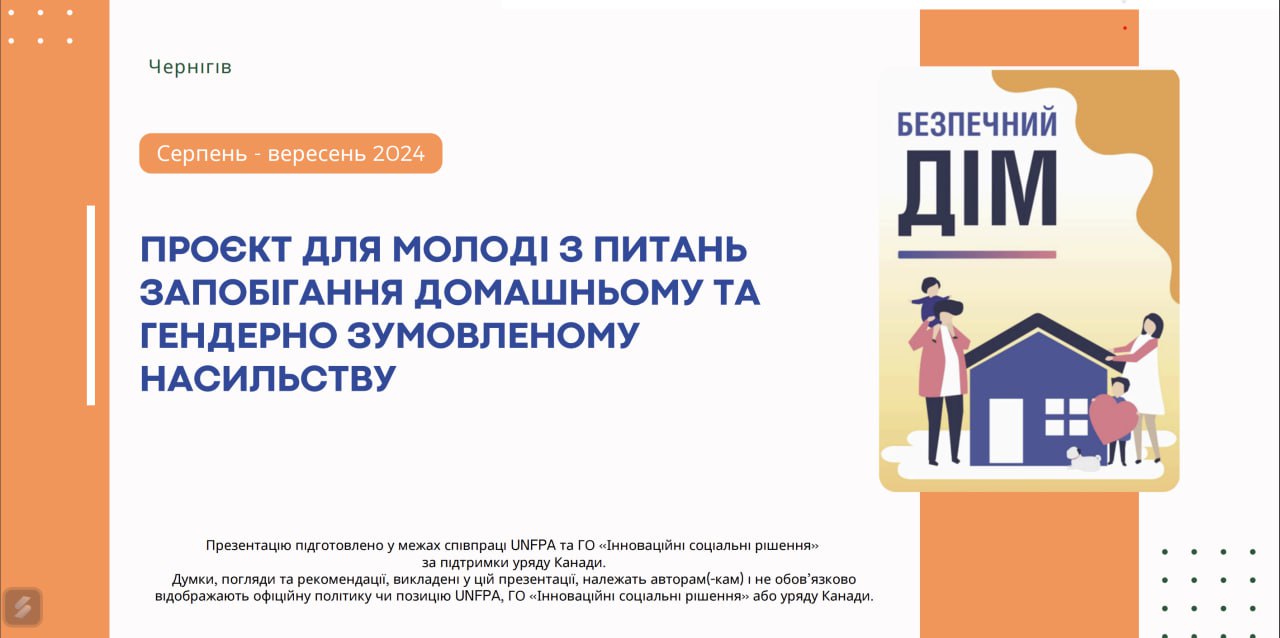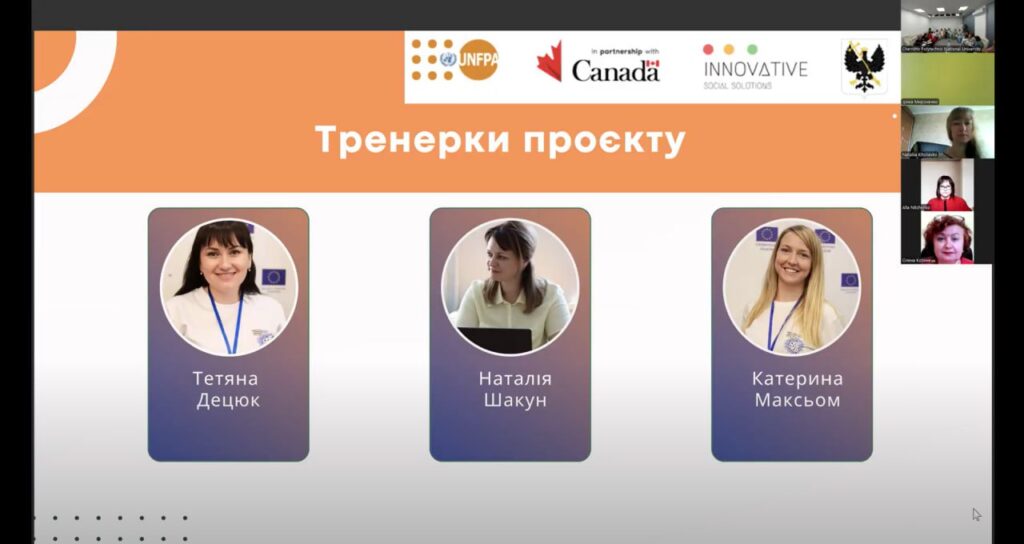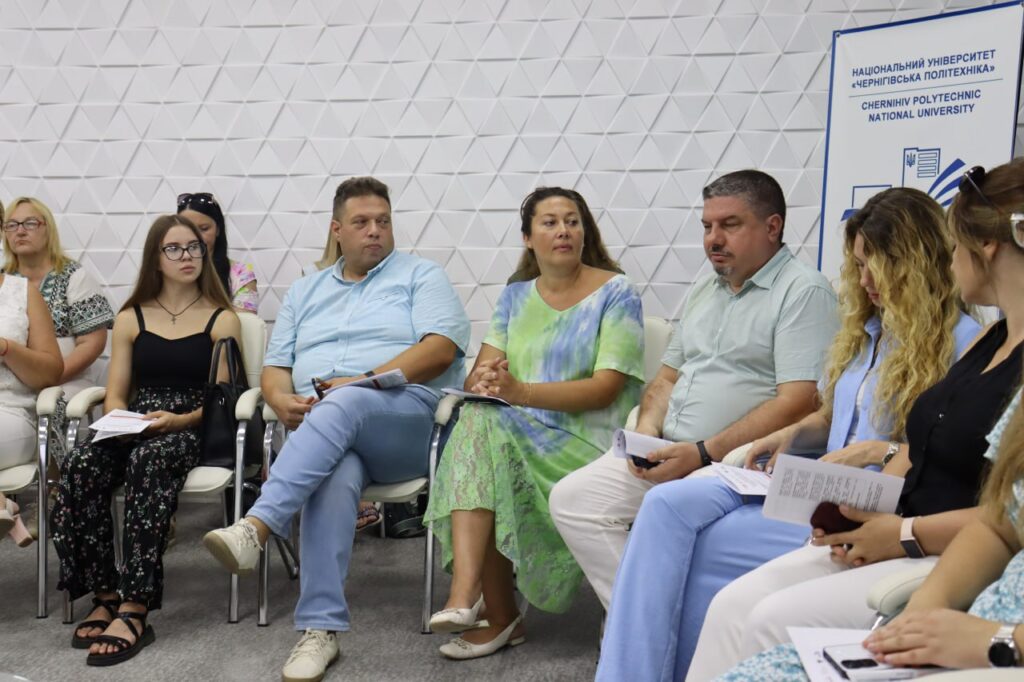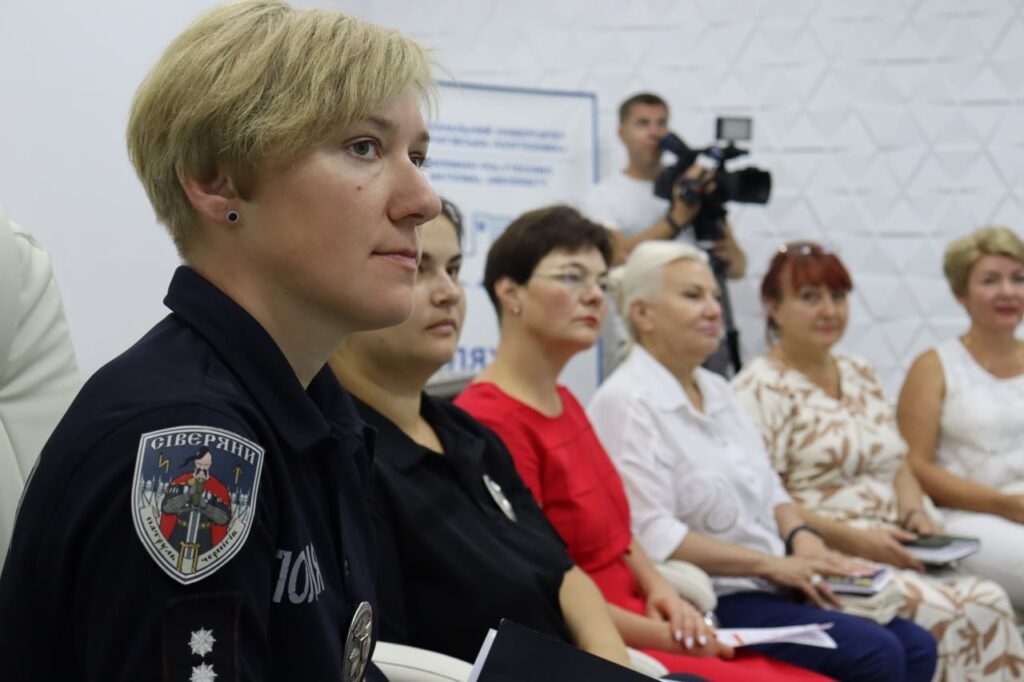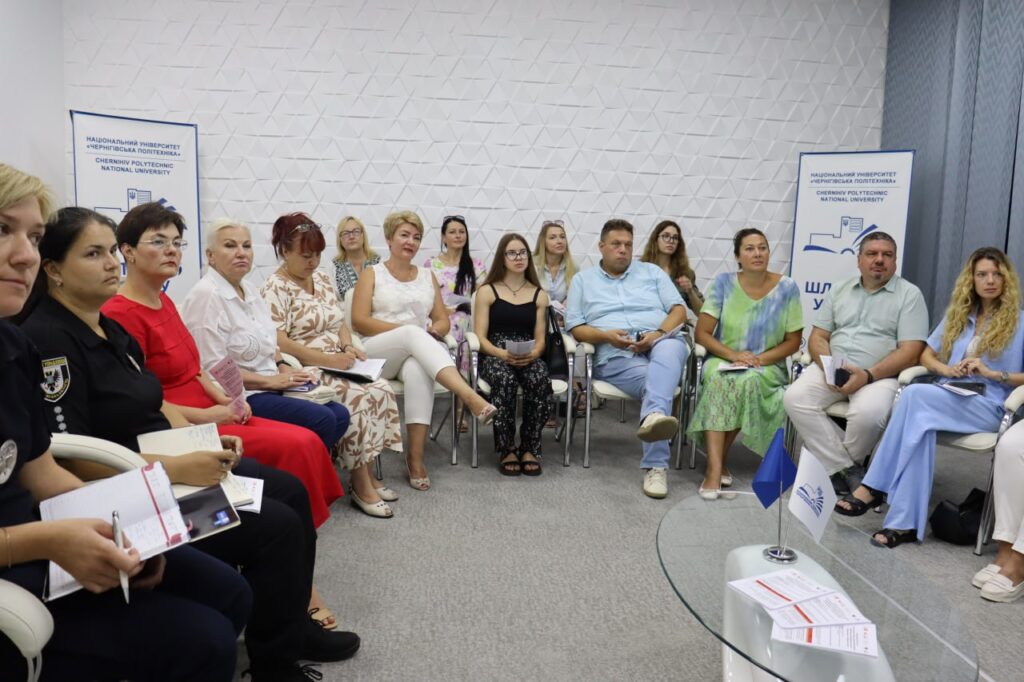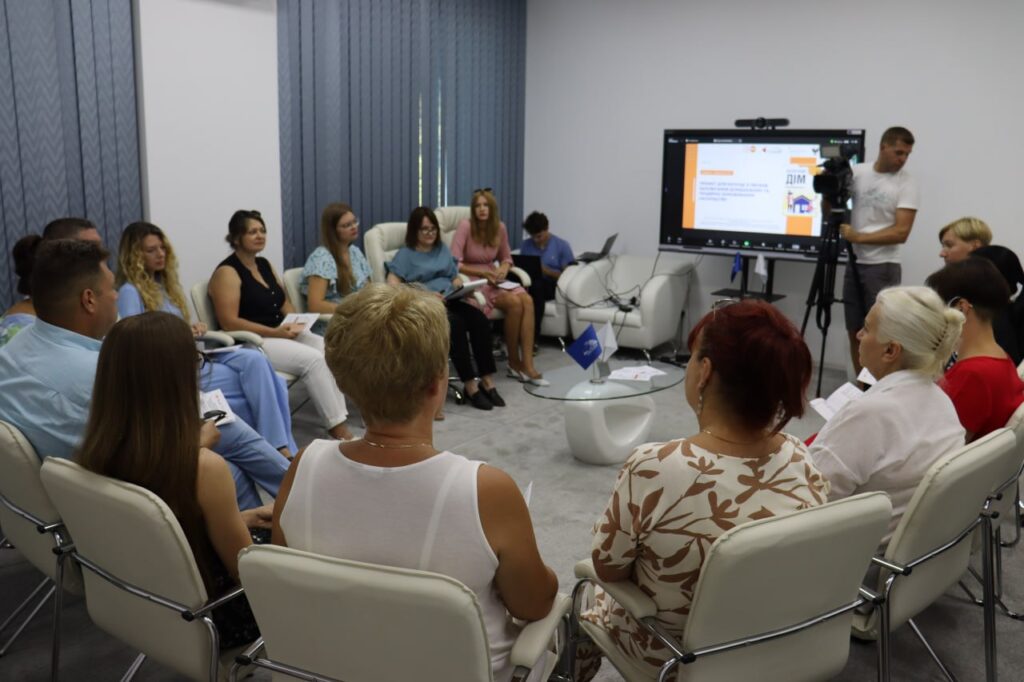A round table has been held
On 20 August, a roundtable discussion was held at the Chernihiv Polytechnic National University to present the Safe Home project for young people on the prevention of gender-based and domestic violence.
The roundtable was organised by the Department of Law Enforcement and General Legal Disciplines with the support of the University’s Gender Education Centre within the framework of cooperation between UNFPA and the NGO “Innovative Social Solutions” with the support of the Government of Canada.
The roundtable brought together 21 participants – representatives of government, police, NGOs, students, and the media.
Participants had the opportunity to join the event both online and offline. (Program)
Olha Melnyk, Vice-Rector for Scientific and Pedagogical Work and Social Development, Candidate of Philosophy, Associate Professor of the Chernihiv Polytechnic National University, member of the project team, welcomed the participants of the round table. “Unfortunately, the problem of domestic and gender-based violence has always existed in Ukrainian society. Today we understand that it tends to spread, for obvious reasons. That is why our most important task as an educational institution will be to help change the mentality of young people to not keep silent about this problem,” Olha noted.
The report of the Safe House project coordinator Alla Nitchenko described the goal, objectives, and planned project activities, and gave the floor to the project trainers, each of whom presented their area of work.
During the roundtable meeting, the participants discussed the project presentation and its importance for the Chernihiv territorial community. They positively noted the choice of students as the target audience, since it is young people who, having learned in time about the inadmissibility of violence in the family and in society, will be able to form zero tolerance for violence in their minds.
The project is implemented within the framework of cooperation between UNFPA and the NGO “Innovative Social Solutions” with the support of the Government of Canada. The opinions, views and recommendations expressed in this initiative are those of the author(s) and do not necessarily reflect the official policy or position of UNFPA, Innovative Social Solutions or the Government of Canada.
